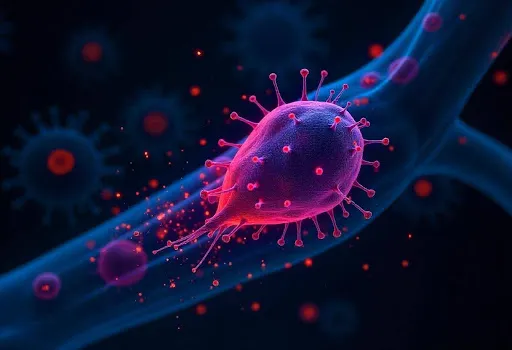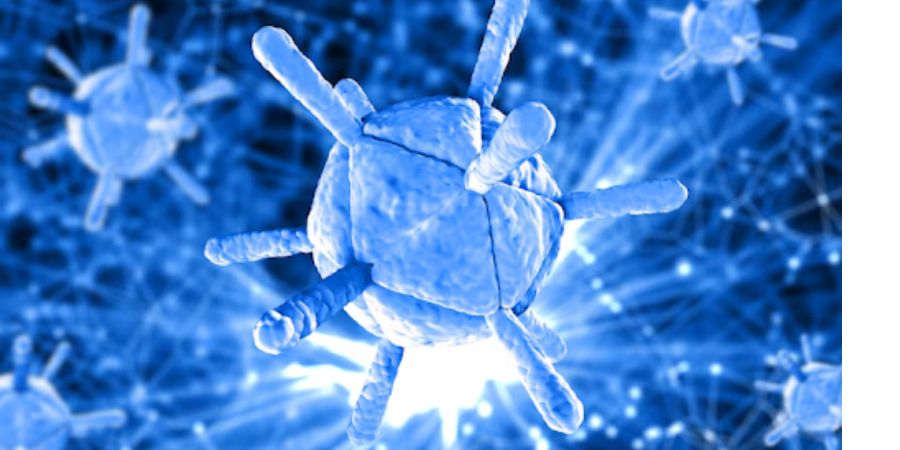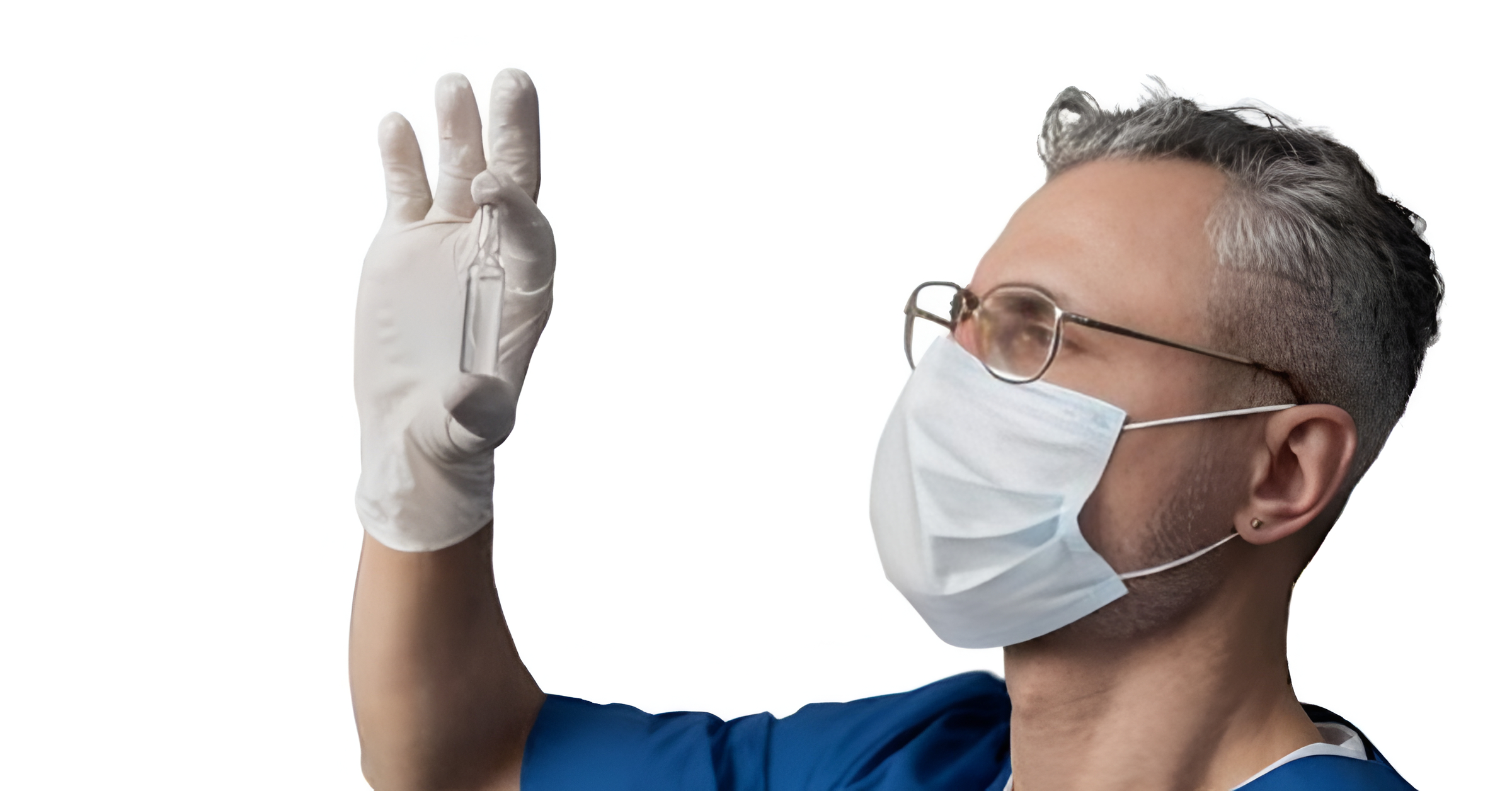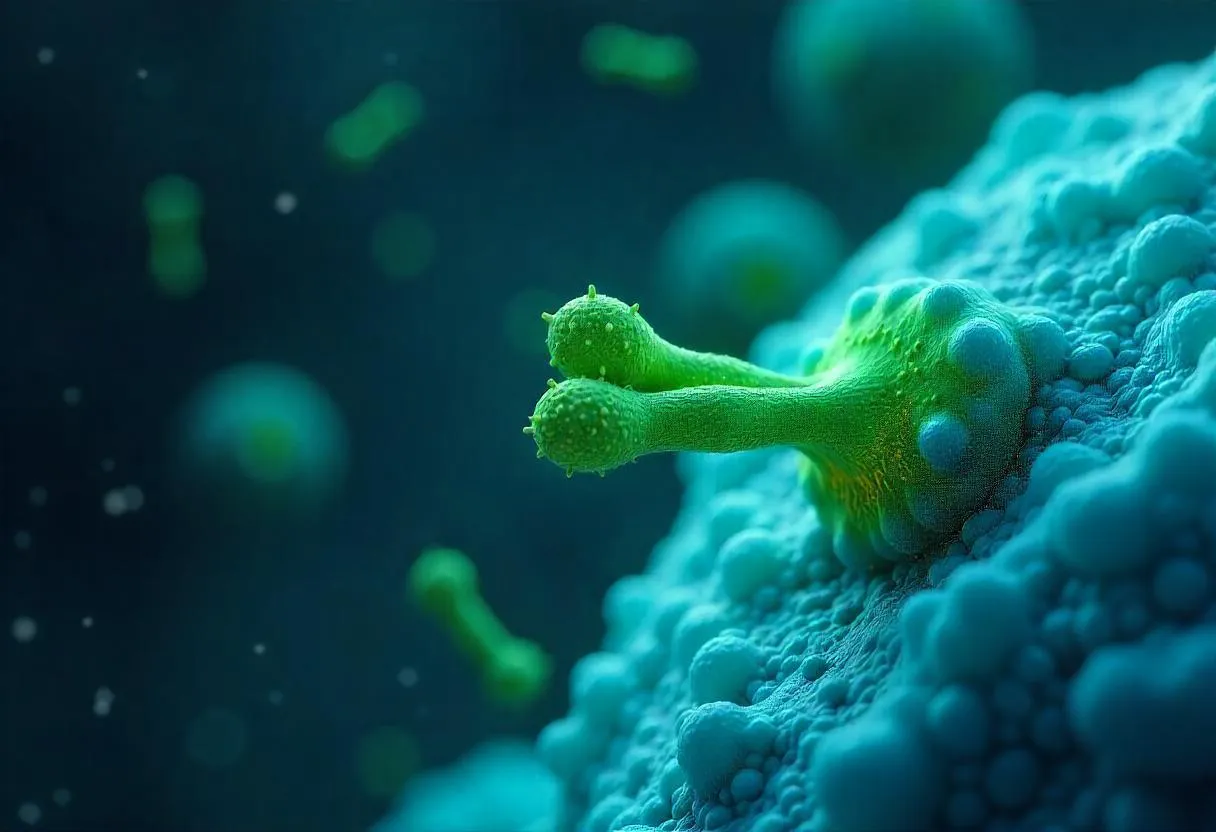What Are Polyclonal Antibodies and Why Do They Matter?
In this Article
All of the products listed in AAA Biotech’s catalog are strictly for research-use only (RUO).
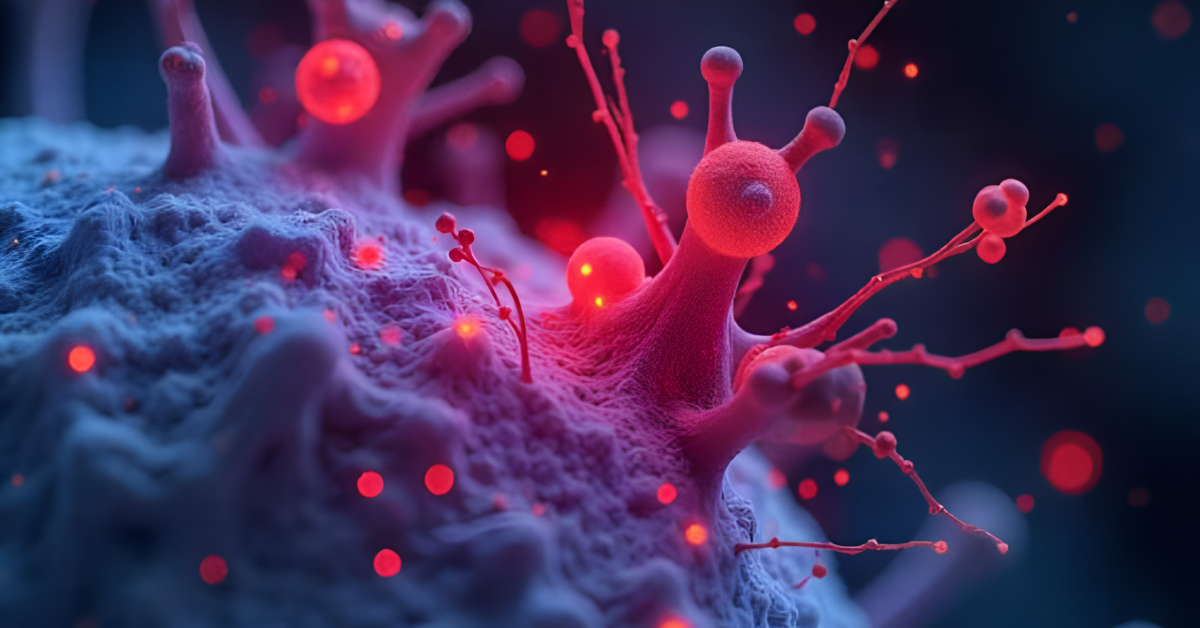
When the body’s immune system detects the presence of something “foreign”, like bacteria or viruses (called antigens), it activates, and produces various responses. This includes activation of certain immune cells called B cells, which begin making special proteins known as antibodies.
Polyclonal antibodies are a mix of different antibodies that can each recognize and attach to different parts of the same target. This makes them very good at finding and binding to their target, even if the target changes slightly (such as if a virus mutates).
These antibodies are useful in research because they:
- Bind strongly to their target.
- Still work well even if the target changes a bit in shape or structure.
- Are often more sensitive than single-site-recognizing antibodies in tests and can help remove infections more effectively.
However, producing large amounts of polyclonal antibodies consistently in the lab is challenging, which limits their broader use.
History of Polyclonal Antibodies
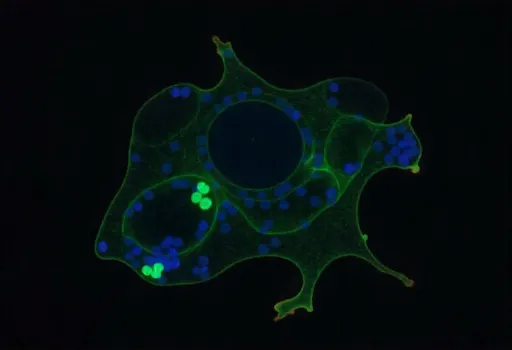
The story of “polyclonal antibodies” began in 1890, when scientists Emil von Behring and Shibasaburo Kitasato discovered that injecting sick animals with blood serum from animals that had been protected against diphtheria could result in a “cure” for the disease.
It showed that something in the blood—what we now know as antibodies—could fight off infections.
Later, Paul Ehrlich, a key figure in immunology, introduced the idea that cells have special receptors that can recognize and bind to specific germs. This was one of the first theories explaining how antibodies work.
Over time, the study of proteins, amino acids, and peptides became more of a widespread focus, especially in understanding how antibodies recognize different parts of harmful substances.
In 1979, scientists developed the Western Blotting technique. This allowed researchers to take proteins from cells, place them on membranes, and test how antibodies react with them—a major step forward in using antibodies for research.
What Process Is Used To Make Polyclonal Antibodies?
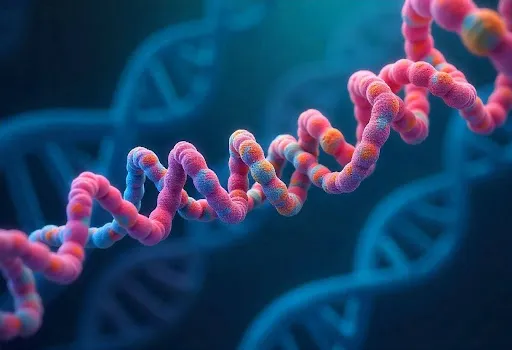
Polyclonal antibodies (pAbs) are produced by injecting an animal with a specific substance (referred to an “antigen”, and when an antigen is being specifically used to purposely induce antibody generation, it is referred to as an “immunogen”).
Animals like rabbits, guinea pigs, or sheep are commonly used. Just like in humans, the animal’s immune system reacts to the antigen by making many types of antibodies that are going to detect many different parts of the antigen.
After about two weeks, these antibodies are collected from the animal’s blood – this collected material is referred to as “antiserum”.
The antiserum contains many different antibodies made by many different immune cells (B cells). Here's a breakdown of how the process works:
Preparing the antigen
The quality and amount of the antigen are very important. To avoid unwanted reactions, the antigen is highly purified to remove anything that could cause confusion in the immune response.
Choosing an animal (host)
The type of animal used depends on how much antibody is needed, how closely related the animal is to the antigen, and how the antibodies will be used later.
Immunization
The chosen animal is injected with the antigen, along with special substances (adjuvants) that help induce the immune system to produce more antibodies.
Once the antibody levels stop increasing, more injections (called boosters) are given to maintain the high levels of the cells’ production of the antibodies.
Monitoring after immunization
The animal is checked for any side effects. Once enough antiserum is collected, it is tested to see how much useful antibody it contains.
One method involves attaching a marker to the antibody (such as a fluorescent dye) to help measure it accurately.
What Are the Uses of Polyclonal Antibodies (pAbs)?
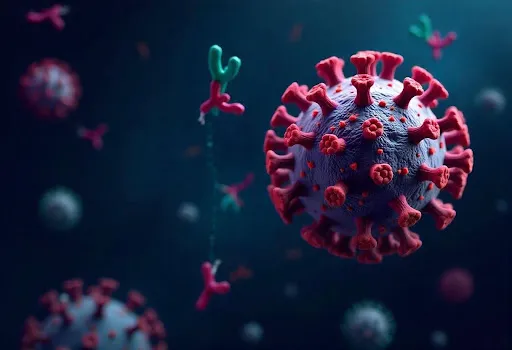
Polyclonal antibodies are very useful in scientific research. In a testing method called “ELISA” (which helps detect substances in various samples), pAbs work well because they can bind to and recognize different parts of the same target.
This property enables polyclonal antibodies to be considered very sensitive (compared to monoclonal antibodies) for many applications, and great tools for picking up small differences, especially in human samples.
Because they can attach to many parts of a virus or toxin (just like the natural immune system does), pAbs are good at fighting infections. They are very useful at neutralizing harmful substances. Further, they are especially helpful in cancer treatment, where they can help the body attack and kill cancer cells.
How do polyclonal antibodies fight antigens?
Polyclonal antibodies (pAbs) are a mix of different antibodies that can attach to multiple spots on the same antigen.
Here’s how the process works:
- When the body detects something foreign (an antigen), immune cells known as T-cells and B-cells are activated.
- The B-cells multiply and produce many copies of antibodies.
- These polyclonal antibodies then enter the bloodstream and attach to different parts of the antigen, helping to mark it for destruction or blocking its harmful effects.
Because pAbs can recognize several parts of a target, they are often more effective at identifying and fighting off invaders like viruses and bacteria.
Advantages of Polyclonal Antibodies (pAbs)
Polyclonal antibodies are a mix of different antibodies that can attach to various parts (called epitopes) of a target, such as a protein or toxin.
They’re made by injecting an animal with the target and then collecting the antibodies from its blood after the immune system is induced to react strongly.
They’re especially good at finding rare or small amounts of substances—such as toxins or disease markers—making them helpful for early disease detection, food safety checks, and catching and purifying rare molecules for further study.
In medicine, polyclonal antibodies are life-saving in situations like snake bites. Snake venom contains many harmful proteins, and polyclonal antibodies can target several of them at once. It helps stop the damage more effectively than a single antibody would.
Other benefits include:
- They’re cheaper and faster to produce.
- They're good for urgent situations where time is important.
Challenges:
It's hard to produce large amounts consistently, and each batch can be slightly different.
This can be managed by including proper test controls to ensure reliable results.
New improvements:
Scientists have found better ways to collect antibodies using egg yolks and special purification methods.
These new techniques are less invasive, cost-effective, and could make polyclonal antibodies even more useful in the future.
What Are Its Current Uses Being Studied?
Scientists are currently exploring how polyclonal antibodies (pAbs) can help treat a wide range of health problems.
Currently, researchers are primarily focusing on their use in -
- infectious diseases,
- autoimmune disorders, and
- cancer treatments.
Infectious Diseases
pAbs are being tested both -
- to prevent infections and
- to treat people who are already sick.
Their ability to recognize many parts of viruses or bacteria makes them good at stopping germs that have the ability to change/modify themselves quickly.
Often, these parts that are recognized are usually some virusal and bacterial toxins.
Viral Infections:
Most polyclonal antibody products are developed to fight viruses.
For example:
- IgY-110 is designed to block the spike protein of COVID-19 (SARS-CoV-2). It helps stop the virus from actually entering the person’s cells in the first place.
- Other products like SAB-185 and FBR-002 are also being tested to target the same virus. These are still in early testing stages.
Polyclonal antibodies have been used in the past to treat viral infections like -
- rabies,
- hepatitis, and
- RSV (a respiratory virus).
Now, with new technologies (like lab-made antibodies), researchers are updating and improving these treatments.
They are making an increased presence in various fields of clinical trials.
Bacterial Infections and Toxins
Polyclonal antibodies (pAbs) are widely being tested/developed as a way to fight harmful bacteria and the toxins they produce.
Examples:
- Medicines like OraCAb, PolyCAb, and IMM-529 are being studied for developing their ability to block bacterial toxins, especially ones called toxA and toxB.
- Another product, SAB-195, is being tested to block both bacterial toxins and the outer components (surface antigens) of bacteria.
Bacteria can be rather difficult sometimes, as they use many ways to cause various aspects of a disease.
So, the usage of polyclonal antibodies is a very realistic possibility for a stronger and more complete way to stop/fight them.
This is only possible thanks to the property of polyclonal antibodies that they are able to target many different parts of the bacteria and their toxins.
Fighting New Infections
Some infections change very quickly, including -
- flu,
- Ebola, and
- COVID-19
Polyclonal antibodies target many parts of a virus. So, it might still work even if the virus changes.
They may lower the risk of "escape mutants.” These are the versions of the virus that avoid treatment.
It makes polyclonal antibodies a strong option for treating new or returning disease outbreaks.
Autoimmune Disorders
These disorders result when the immune system attacks its own body by mistake.
Polyclonal antibodies are now being explored for their ability to “calm down” or balance the immune system in a gentler way.
Immune Modulation & Replacement
Polyclonal antibodies are already used in patients with weak immune systems, as these functionally replace the patient’s body’s missing antibodies.
Further, the treatments can also reduce inflammation and help control immune reactions.
Autoimmune Conditions:
Diseases can benefit from polyclonal therapies. Some include -
- rheumatoid arthritis,
- lupus, and
- autoimmune cytopenias
They target multiple parts of the immune system and may cause fewer side effects compared to traditional treatments which can be very strong and occasionally excessively hard on the body.
Prevention of Damage:
Researchers are also using polyclonal antibodies to stop or lessen autoimmune attacks before they cause too much harm.
These studies are still early, and more testing is needed, as there is a need to understand how much to give and to elucidate how safe the treatment may be if given over a longer time.
Cancer Treatment
Cancer is another big area where polyclonal antibodies are being investigated.
Cancer cells often look very different from one another, even within the same tumor, making them hard to treat with a single-target approach.
Targeting Tumors Directly:
A product called Trimodulin is currently being further developed and studied for treating -
- cancers,
- infections, and
- other illnesses.
In cancer, it may help by blocking harmful molecules (like endotoxins) that can assist the tumors in growing larger.
Multi-Target Strategy:
The multi-targeting power of polyclonal antibodies could help the body better recognize and destroy cancer cells.
It can be achieved via boosting immune responses like ADCC and CDC—ways the immune system has to kill “bad” cells.
To Sum Up
Polyclonal antibodies can bind to/recognize many different parts (epitopes) of a target. It is for this reason that they are extremely useful in both detection testing and treatments.
They are also extremely widely used in lab tests like ELISA, Western Blot, and Immunohistochemistry to help detect substances with high sensitivity.
Their ability to provide a higher sensitivity for many applications means they can help in the early detection diseases, when there might not be much of the disease to detect.
They’re also great at being able to capture very small quantities of markers (like proteins) contained in complex samples. This allows for said marks to be studied more closely.

